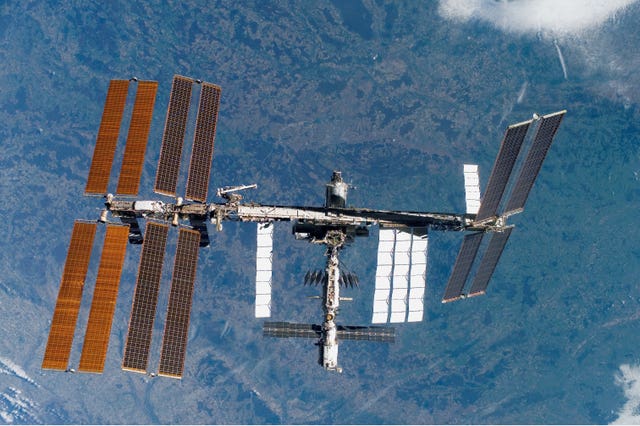
Shelagh Fogarty 1pm - 4pm
10 November 2020, 16:04

Astronauts have been extracting useful bacteria from rocks on Mars and the Moon using devices developed by the University of Edinburgh.
Mining experiments conducted in orbit could pave the way for new technologies to aid space exploration and help establish human settlements elsewhere in the Solar System, a new study suggests.
Using matchbox-sized mining devices, astronauts may be able to extract useful bacteria from rocks on Mars and the Moon.
The devices, called biomining reactors, were developed at the UK Centre for Astrobiology at the University of Edinburgh over a 10-year period.
The reactors could help scientists develop ways of sourcing metals and minerals – such as iron and magnesium – essential for survival in space.
The bacteria could one day be used to break rocks down into soil for growing crops or to provide minerals for life support systems that produce air and water, researchers say.

When a SpaceX rocket launched from Cape Canaveral in Florida in July 2019 headed for the the International Space Station (ISS), 18 of the mining devices were aboard.
Small pieces of basalt – a common rock found on Mars and the Moon – were loaded into each device and submerged in a bacterial solution.
The three-week experiment was conducted under space gravity conditions to simulate environments on Mars and the Moon.
The team’s findings suggest bacteria could enhance the removal of rare Earth elements from basalt in Martian and lunar landscapes by around 400%.
Rare Earth elements are widely used in technology industries including mobile phones, computers and magnets.
Microbes are also routinely used on Earth in the process of biomining to extract economically useful elements such as copper and gold from rocks.
The experiments have also provided new data on how gravity influences the growth of communities of microbes here on Earth, researchers say.
Leading the project, Professor Charles Cockell, of the University of Edinburgh’s School of Physics and Astronomy, said: “Our experiments lend support to the scientific and technical feasibility of biologically enhanced elemental mining across the Solar System.
“While it is not economically viable to mine these elements in space and bring them to Earth, space biomining could potentially support a self-sustaining human presence in space.
“For example, our results suggest that the construction of robotic and human-tended mines in the Oceanus Procellarum region of the Moon, which has rocks with enriched concentrations of rare earth elements, could be one fruitful direction of human scientific and economic development beyond Earth.”
Libby Jackson, human exploration programme manager at the UK Space Agency, said: “It is wonderful to see the scientific findings of BioRock published.
“Experiments like this is show how the UK, through the UK Space Agency, is playing a pivotal role in the European Space Agency’s exploration programme.
“Findings from experiments like BioRock will not only help develop technology that will allow humans to explore our Solar System further but also helps scientists from a wide range of disciplines gain knowledge that can benefit all of us on Earth.”
The study, published in the journal Nature Communications, received funding from the UK Space Agency and the European Space Agency.